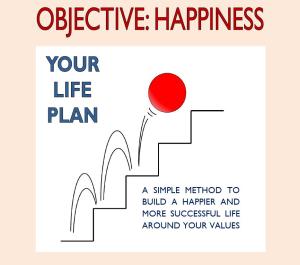 We all know the feeling of having to deal with an emotionally loaded happening or decision, or when we need to communicate about something emotional for the other person(s).
We all know the feeling of having to deal with an emotionally loaded happening or decision, or when we need to communicate about something emotional for the other person(s).
The main problem is to be able to see the rational aspect of what we are dealing with in a moment when we have lost this ability to calmly analyze and put things in perspective. Our brain is reacting in the here and now and what leads us is to escape the situation as well as possible immediately. In this process, we rarely have the ability to think about the consequences of our behaviour.
Controlling one’s emotions
Although this is quite difficult for some people, the best way to start reacting is to not react, because your reaction can make others react back to you and there always is a risk of escalation. Before saying or doing anything, try to get as much information as you can by asking questions or even by keeping quiet. Generally, being silent is a great way of getting others to do the talking. Do not be afraid to ask for suggestions and listen before reacting on the answers.
Two emotions always can get you in more trouble than serve you: anger and fear. In both cases, the ideal way to deal with your emotions is to buy some time before reacting, in order to relieve the impulsivity and start to get a look at the larger picture. If possible, allow yourself a night of sleep before completing the process. It will calm you down; it will allow you to start thinking more rationally and put things back in perspective. It also allows you to develop your own plan on how to deal with the matter that happened to you.
Connecting with another person’s emotions
Although you are not dealing with your own emotions and you are in a position of thinking rationally, this situation is not any easier. The key here is to be able to literally get on the same wavelength as the other person. To do this properly, some empathy is obviously a great asset, but empathy alone is not enough. You need to assess the level of emotionality involved, and adjust your level of rationality accordingly. The best way to connect with the emotional person and to identify how intense the emotions are is to let the person vent and express what is causing the trouble. S/He will feel comfortable with this, because you create the conditions for it. Ask questions when necessary but do not make this an interrogation. Also, realize that, in an emotional interaction, verbal communication is a lot less effective than in a rational conversation. Therefore, your body language is quite important, which makes it even more important that you are sincerely willing to listen and connect. Since when it comes to non-verbal communication, the body follows the mind, any lack of sincerity on your part will probably be perceived.
Once you have connected, you will be a position to lead the conversation and, one step at a time, bring it back to increasingly more rational level. You will know that you have completed the process when the smiles come back and you reach an agreement on the next step.
If you are interested in this subject, feel free to contact me.
Copyright 2009 The Happy Future Group Consulting Ltd.



 Posted by Christophe Pelletier
Posted by Christophe Pelletier 








